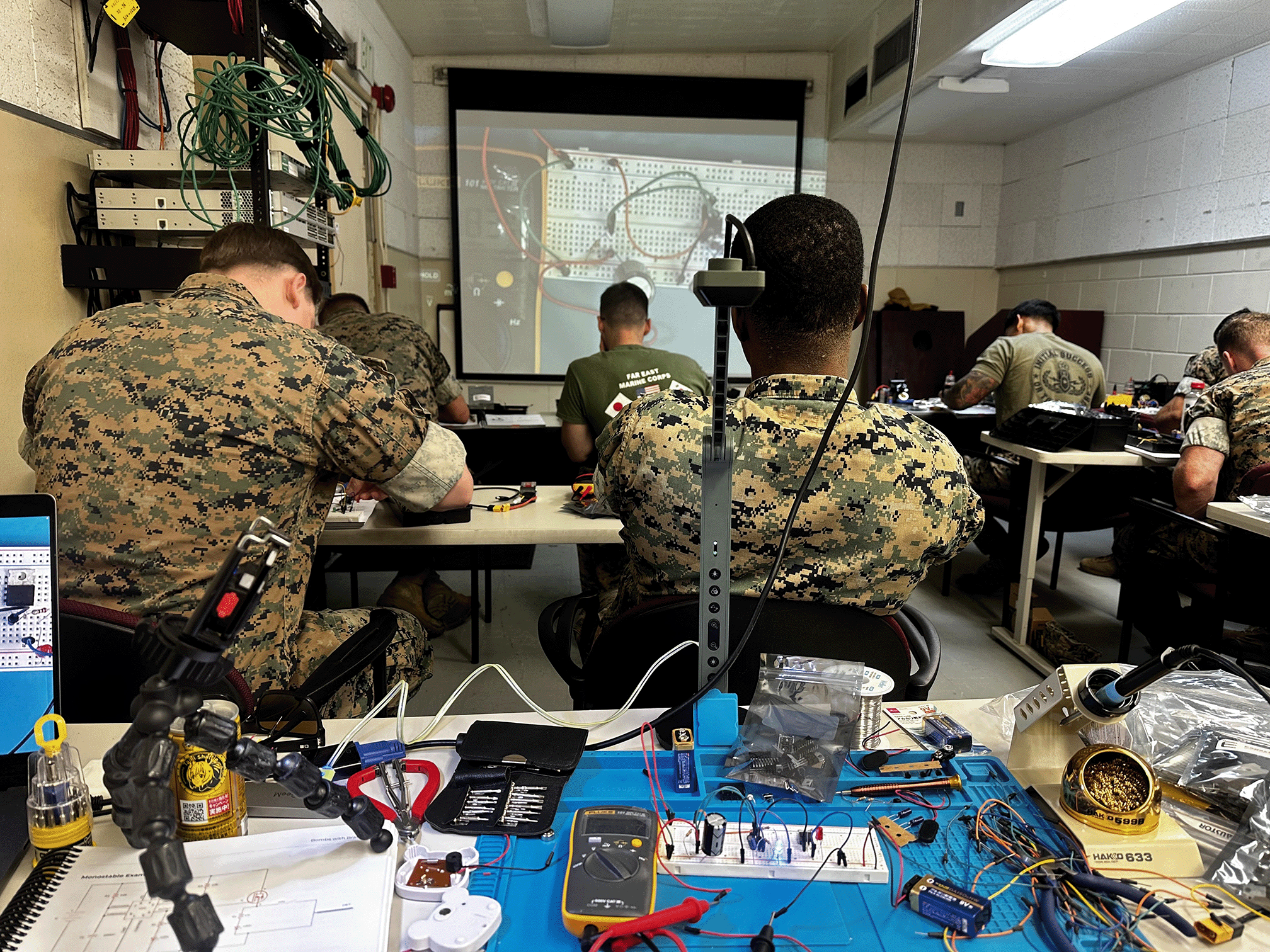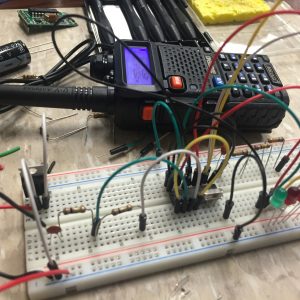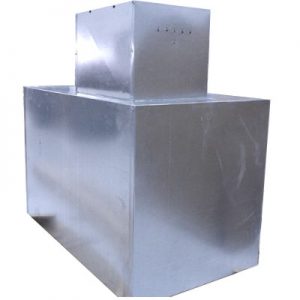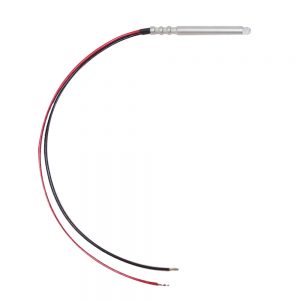Description
USMC EOD Electronics Course
Course Duration: 40 Hours
Schedule of Events:
Day 1: DC Theory (Resistors, Batteries, Capacitors, and Switches)
Lecture:
The lecture focuses on various passive components found in IEDs and the foundational concepts that explain their behavior in IED circuits. These concepts will be related to EOD procedures by examining how DET Diagnostics and Ohm’s Law align. We will break IED circuits down to their inputs and outputs and identify single points of failure.
Lab:
- Multimeter tutorial
- Breadboard simple circuits and test with the supplied multimeter
- Observe capacitor charging and voltages across open, closed, and EOL switches
- Solder breadboard leads to switches
Day 2: Relays, Diodes, Transistors, MOSFETs, and SCRs
Lecture:
The lecture covers common firing switches used in IEDs over the past 20 years. Students are introduced to electromechanical and semiconductor firing switches through their schematic symbols, data sheets, and example IED circuits. We will review historical Weapons Technical Intelligence (WTI) from actual IED events to replicate circuits live in class.
Lab:
- Breadboard five historical IEDs using supplied components
- Build Dual SCR IED Circuit Board
- Build RC Timer Armed Open and Closed Switch Board
Day 3: IC Chips, Logic Chips, and RCIED Circuits
Lecture:
This lecture discusses IC chips historically used in IEDs and their evolution into victim-operated and RCIED devices from recent conflicts.
Lab:
- Build RFT-2 on supplied PCB
- Build DTMF PIC IED Circuit Board and interface with COTS radio (similar to DTMF-11)
Day 4: Programming Concepts and Arduino Applied to IEDs
Lecture:
Focused on classifying microcontrollers used in IEDs and the process of developing code and hardware for an IED. Practical examples of historical microcontroller IED circuits will be presented and adapted for the Arduino lab.
Lab:
Students will learn and apply basic alarm theory by building a wire attack trainer and resistor substitution board from supplied PCBs and source code.
- Install Arduino IDE and libraries
- Build Arduino Alarm Board
- Build Programmer Boards
- Build Arduino Resistor Substitution Board
- Build Arduino RFM95 Communication
Day 5: Drone Team Builds and Operation for EOD Applications
Lecture:
An introduction to FPV (First-Person View) drone technology, safety procedures, and regulations for drone operation. The lecture will cover basic drone operations for EOD, with a sample SOP provided to help the unit develop its own drone program. We will briefly cover the process for obtaining an FCC Part 107 license and provide a study guide. A large portion of the lecture will cover the division and classification of drones used in warfare and the anatomy of those drones. We will deep dive into the DIY parts available for homebrew drones and how to make a viable drone from these parts.
Lab:
Students will split into four teams to build and test drones from the supplied kit.
- Assembling an FPV drone from kit components
- Integrating cameras and sensors
- Basic programming for drone control and operation
- Practical exercises in drone navigation and remote threat assessment
Deliverables:
- Lab kits (Breadboard, Multimeter, Soldering Iron, Parts Kit, COTs timer and DTMF Radio, Arduino boards, and corresponding device builds)
- Student Training guide with schematics & diagrams
- CAD files and source code (from the labs)
- Four Drone Kits
- Certificate of Completion
Includes lifetime access to course materials.






